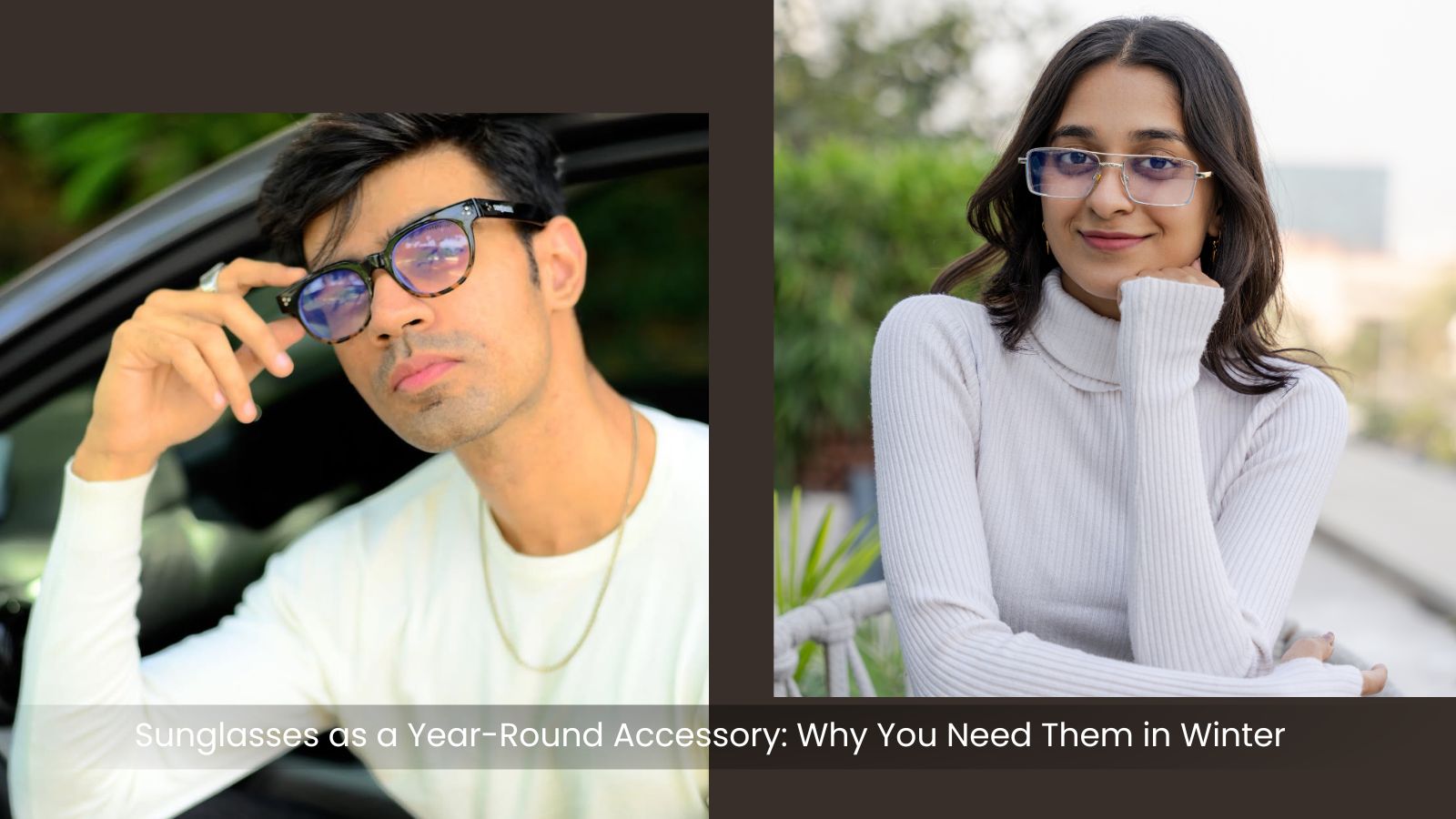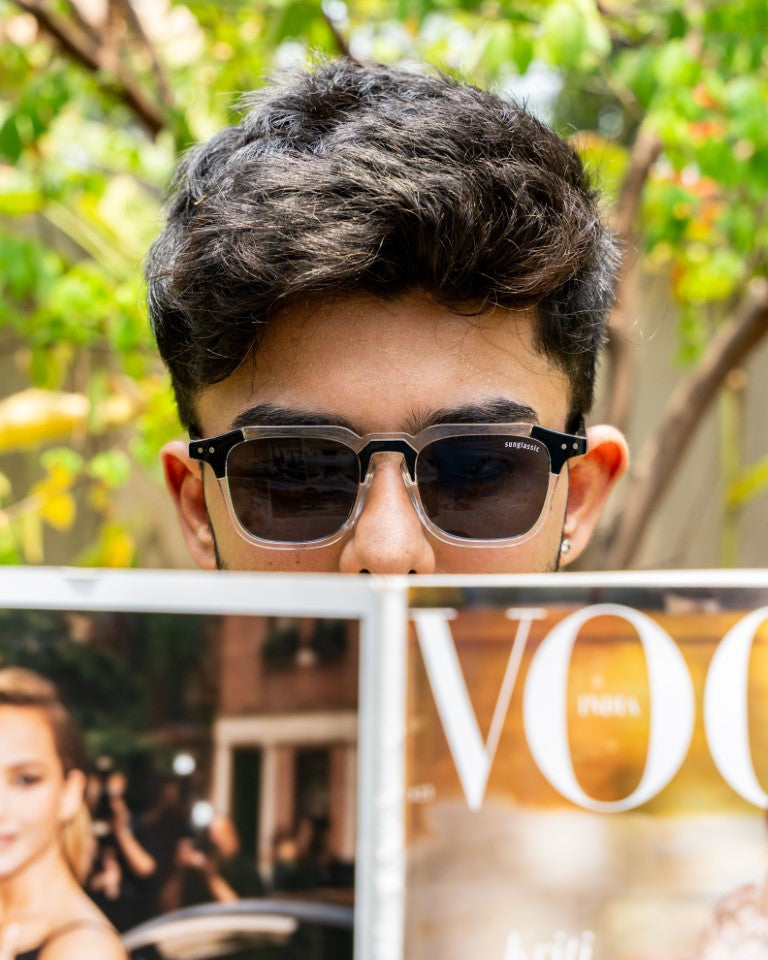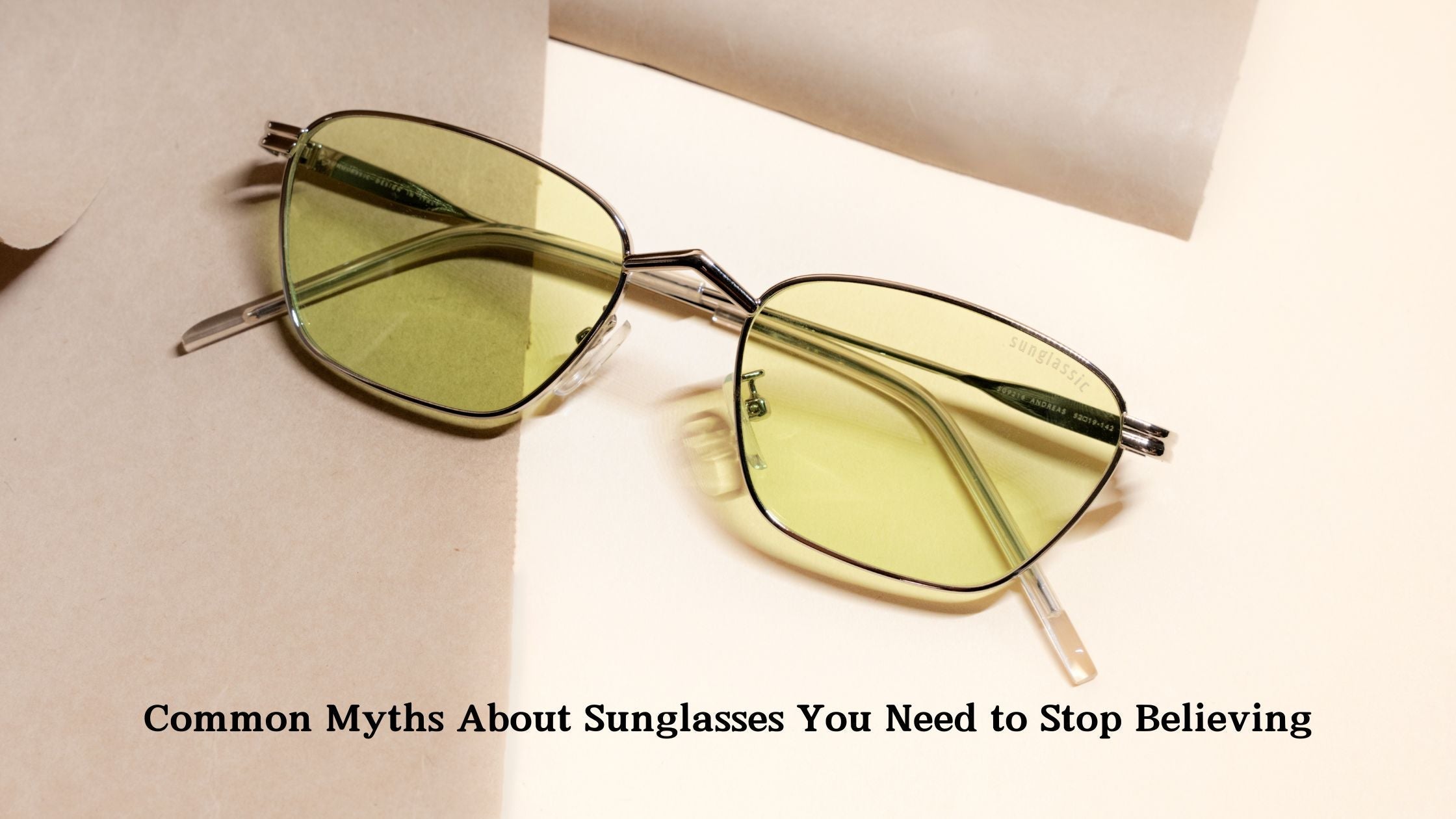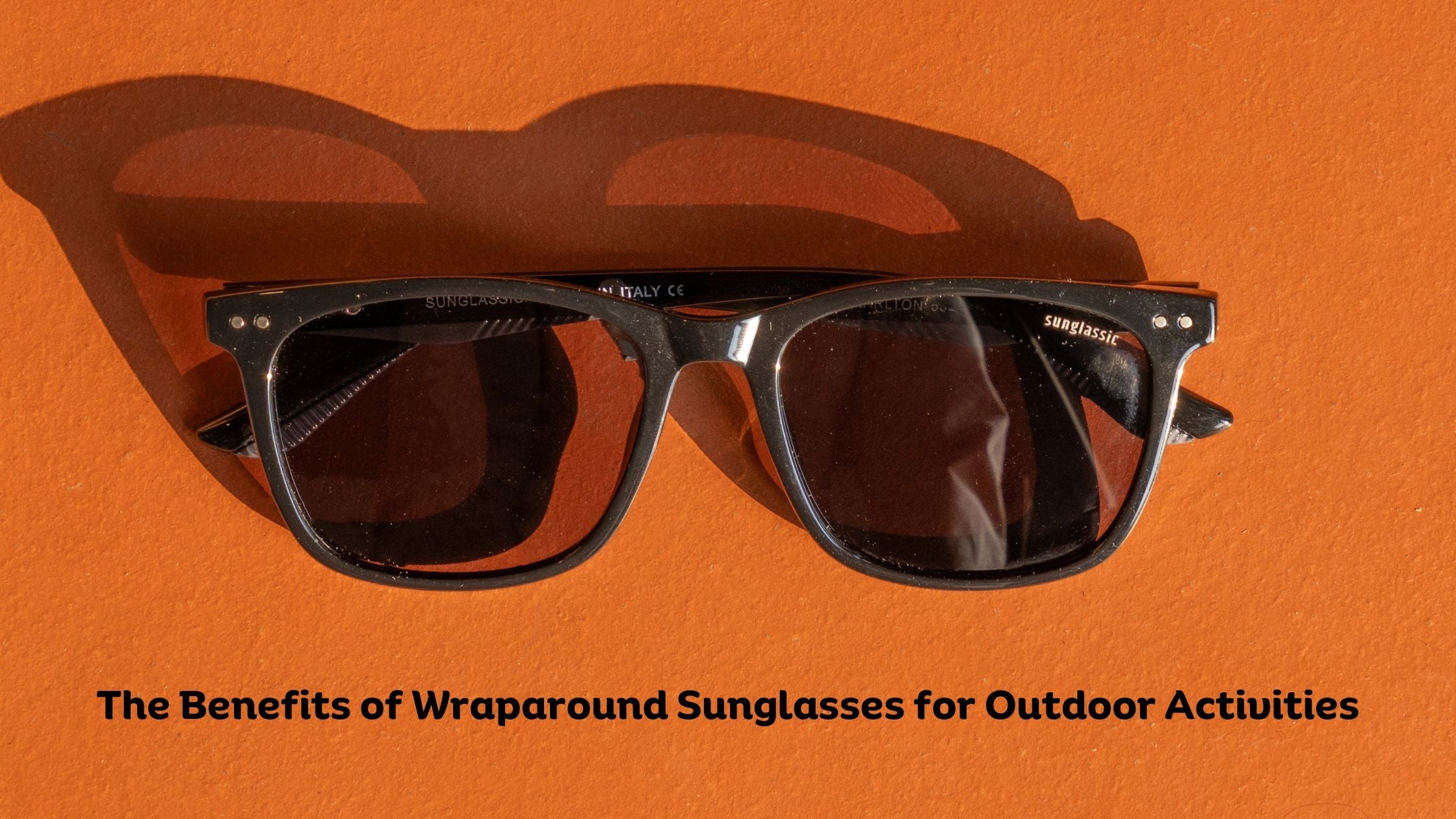
Sunglasses as a Year-Round Accessory: Why You Need Them in Winter
Introduction
When we think of sunglasses, summer days at the beach or driving under a blazing sun often come to mind. However, sunglasses are not just for summer—they are an essential year-round accessory, especially during winter. Winter presents unique challenges for eye protection, including harsh glare from snow and increased UV exposure. If you haven’t considered wearing sunglasses in winter, now is the time to start. In this guide, we’ll explore why sunglasses—especially polarized sunglasses—are a must-have even in the colder months.
The Importance of Sunglasses in Winter
Winter sun can be just as harmful, if not more so, than summer sun. Here’s why you should keep your sunglasses handy during the colder months:
1. Protection from UV Rays
Many people assume that UV exposure is lower in winter, but this is a misconception. The sun sits lower in the sky during winter, which increases the intensity of UV rays hitting your eyes. Additionally, snow reflects up to 80% of UV radiation, significantly increasing exposure. Polarized sunglasses provide excellent UV protection, ensuring your eyes remain safe from these harmful rays.
2. Reducing Snow Glare
Snow acts like a mirror, reflecting light and creating intense glare that can be uncomfortable and even dangerous. Whether you're driving, skiing, or simply walking outside, this glare can reduce visibility and strain your eyes. Polarized sunglasses are designed to minimize glare by filtering out horizontal light reflections, giving you a clearer and more comfortable view.
3. Preventing Eye Strain and Fatigue
Bright winter light and reflections from icy surfaces force your eyes to work harder, leading to strain and fatigue. This is particularly noticeable when driving or engaging in outdoor activities. Wearing polarized sunglasses can help relax your eyes by reducing excessive brightness, preventing headaches, and making winter outings more enjoyable.
4. Protecting Against Wind and Debris
Winter weather can be harsh, with strong winds carrying dust, debris, and even ice particles that can irritate your eyes. Sunglasses act as a protective barrier, shielding your eyes from these elements. Polarized sunglasses with wraparound frames offer even better coverage, preventing wind and debris from affecting your vision.
5. Improving Driving Safety
Driving in winter can be challenging due to snow-covered roads and blinding glare from ice and wet surfaces. Polarized sunglasses enhance road visibility by cutting down glare, improving contrast, and reducing reflections from other vehicles and wet roads. This makes driving safer and more comfortable, especially during sunrise and sunset when glare is at its peak.
Choosing the Right Sunglasses for Winter
Not all sunglasses are created equal, and selecting the right pair for winter is crucial. Here are some key factors to consider:
1. Opt for Polarized Lenses
As mentioned earlier, polarized sunglasses are ideal for winter because they eliminate glare from snow and wet surfaces. This makes them particularly beneficial for outdoor enthusiasts, drivers, and anyone who spends time in snowy environments.
2. Look for UV Protection
Ensure your sunglasses provide 100% UV protection. This shields your eyes from harmful UVA and UVB rays, reducing the risk of long-term eye damage and conditions like cataracts or macular degeneration.
3. Consider Lens Color
The lens color of your polarized sunglasses can affect how you perceive contrast and depth. For winter, the following lens colors are recommended:
-
Gray lenses: Ideal for everyday wear, reducing overall brightness without distorting colors.
-
Brown/amber lenses: Enhance contrast, making them great for snow-covered landscapes.
-
Yellow lenses: Improve visibility in low-light conditions, such as foggy or overcast days.
4. Choose a Frame Style for Maximum Coverage
Wider or wraparound frames provide better coverage, preventing wind, debris, and light from entering from the sides. This is particularly beneficial for skiing, snowboarding, and other winter sports.
Winter Activities Where Sunglasses Are Essential
1. Skiing and Snowboarding
Mountain slopes have intense UV exposure due to altitude, and snow glare can be overwhelming. Polarized sunglasses or ski goggles with polarized lenses are essential for protecting your eyes and enhancing visibility.
2. Driving
Winter driving involves dealing with low sun angles, bright reflections, and often slippery roads. Wearing polarized sunglasses helps reduce glare, allowing for safer and more comfortable driving conditions.
3. Running and Hiking
Outdoor enthusiasts should wear polarized sunglasses to protect against wind, debris, and snow glare. Lighter frames with secure fits are ideal for active lifestyles.
4. Fishing and Water Sports
Winter fishing may seem unusual, but for those who enjoy it, polarized sunglasses help reduce glare from water surfaces, providing better visibility and protecting against harsh reflections.
5. Everyday Wear
Even if you’re just taking a winter stroll, polarized sunglasses can make a significant difference in comfort by reducing glare and protecting your eyes from UV damage.
Common Myths About Wearing Sunglasses in Winter
Myth 1: There’s Less UV Exposure in Winter
As mentioned earlier, snow reflects UV rays, and at higher altitudes, exposure increases significantly. Sunglasses with UV protection are essential year-round.
Myth 2: Polarized Sunglasses Are Only for Summer
While polarized sunglasses are excellent for summer, they are equally beneficial in winter by reducing glare from snow, ice, and wet roads.
Myth 3: Darker Lenses Provide More Protection
Lens darkness doesn’t necessarily mean better UV protection. Always check for 100% UV protection labels when choosing polarized sunglasses for winter.
FAQs
Q: Can I wear polarized sunglasses in cloudy winter weather?
Yes! Even on cloudy days, UV rays can penetrate clouds, and glare from snow can still cause eye strain. Polarized sunglasses help reduce brightness and protect your eyes.
Q: Are polarized sunglasses necessary for winter sports?
Absolutely! Polarized lenses reduce glare from snow, ice, and water, making activities like skiing, snowboarding, and winter fishing much more comfortable and safer.
Q: Do I need different sunglasses for summer and winter?
Not necessarily. A high-quality pair of polarized sunglasses with UV protection can be used year-round for optimal eye protection.
Q: Can I wear sunglasses while driving in winter?
Yes! Polarized sunglasses reduce glare from wet roads and snow, improving visibility and making winter driving safer.
Conclusion
Sunglasses are not just a summer accessory; they are a year-round necessity, especially in winter. With increased UV exposure, intense snow glare, and harsh environmental conditions, protecting your eyes should be a priority. Polarized sunglasses offer the best defense against glare and provide enhanced visual clarity, making them a must-have for winter activities and daily wear. Whether you're hitting the slopes, driving on icy roads, or simply enjoying a winter walk, the right pair of polarized sunglasses can make all the difference.
Upgrade your winter eyewear collection today at Sunglassic.com, where you’ll find the perfect pair of polarized sunglasses to keep your eyes protected and stylish all year long!
SHOP BY SHAPE
WORN BY OVER 200.000 PEOPLE WORLDWIDE








Leave a comment
This site is protected by hCaptcha and the hCaptcha Privacy Policy and Terms of Service apply.